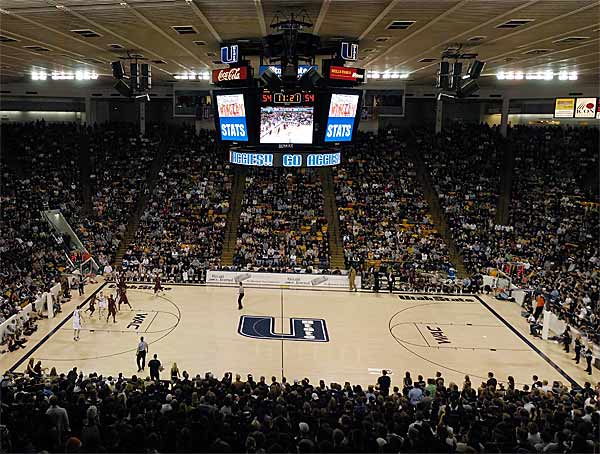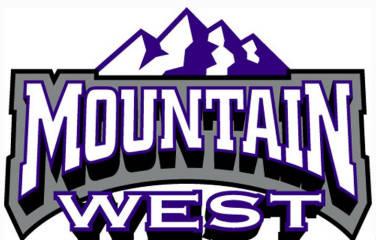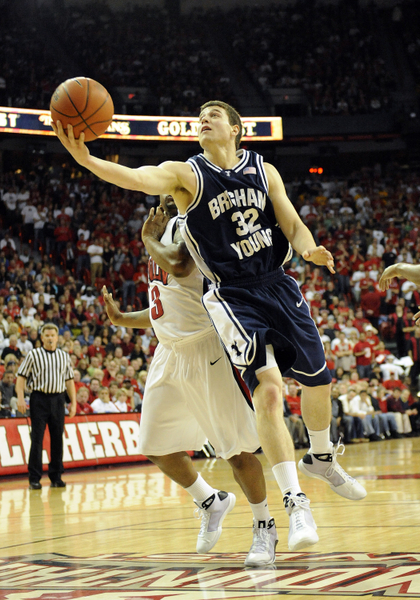RTC Summer Updates: Western Athletic Conference
Posted by Brian Goodman on July 15th, 2011With the completion of the NBA Draft and the annual coaching and transfer carousels nearing their ends, RTC is rolling out a new series, RTC Summer Updates, to give you a crash course on each Division I conference during the summer months. Our newest update comes courtesy of our WAC correspondents, Sam Wasson of Bleed Crimson and Kevin McCarthy of Parsing The WAC.
Reader’s Take
Summer Storylines
Revolving Door. The revolving door in the WAC consists of schools, coaches and players. Last summer, it was the defection of four schools to the Mountain West and the addition of three schools (Denver, Texas State and UT-San Antonio). This summer, there are no more defections (thankfully) but there have been additions. Seattle University will join the WAC for basketball starting in the 2012-13 season and the latest development has UT-Arlington joining their old Southland Conference brethren, Texas State and UT-San Antonio, in the WAC for the 2012-13 season. While it’s still one full season away, the signs are pointing to an eventual East/West split of the WAC. A pair of hopefuls in Utah Valley and Cal State-Bakersfield could bring the basketball league to 12 teams, but whether that comes to fruition remains to be seen.
Early Entries. On the personnel front, the WAC once again saw several underclassmen declare for the NBA Draft, but unlike last season, which saw four get drafted, none of the 2011 early entries were selected. New Mexico State scoring leader Troy Gillenwater was one of those who opted to enter early but he withdrew his name from the draft. However, he will not be returning to New Mexico State after hiring an agent and will likely seek out options in either the NBDL or overseas. Greg Smith from Fresno State opted to leave the Bulldogs after just two seasons but the 6’9″, 250-pound center did not hear his name called. One other big name is no longer with his team and that is Louisiana Tech‘s Olu Ashaolu who has transferred to the University of Oregon. Ashaolu averaged 14.2 points and 9.4 rebounds per game last season for the injury and suspension-depleted Bulldogs and was one of the conference’s top talents. Ashaolu will be eligible immediately for the Ducks as he earned his undergraduate degree from LA Tech and because Oregon offers a graduate program not available there.
Coaching Carousel. For coaching changes, it was a busy offseason for a few teams as Fresno State and Louisiana Tech both opted for a fresh start, hiring new head coaches. Both schools drew high praise for their hires. The Fresno State Bulldogs lured Texas assistant Rodney Terry to Fresno while their namesake counterparts in Louisiana, the LA Tech Bulldogs, hired Ole Miss assistant Michael White. At just 34 years old, White is one of the youngest head coaches in the country joining familiar names Josh Pastner (Memphis) and Brad Stevens (Butler) at that age. New Mexico State also saw some major turnover in their staff as the Aggies lost a pair of assistants in Mick Durham, who took the head men’s basketball position at Division II Alaska-Fairbanks, and assistant Gerald Lewis, who returned to his alma mater, SMU, as the Director of Basketball Operations. The Aggies filled one of the two assistant positions by hiring former Kentucky standout Tony Delk who spent the past two seasons at his alma mater alongside John Calipari and staff in a non-coaching role. Delk figures to have an immediate impact on recruiting, having played in the NBA and also owning a national championship ring while with the Wildcats.













































